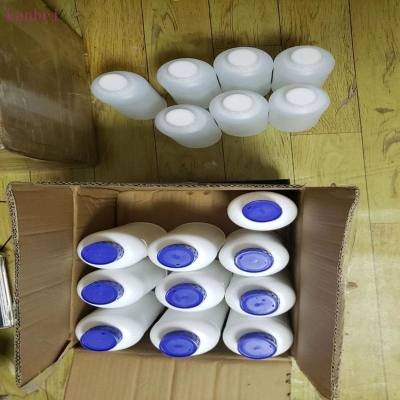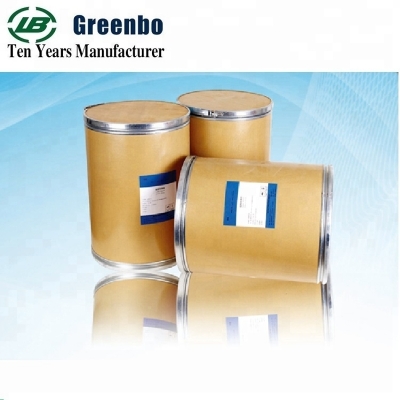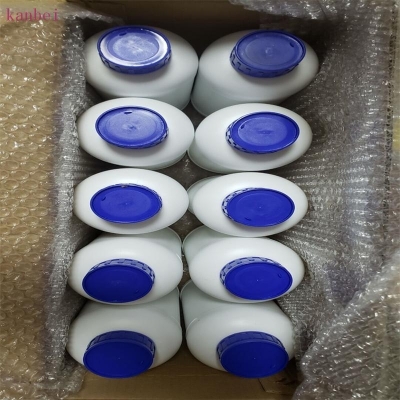Chemical Reagents
- • Deuterated Reagents (124)
- • Organic Reagents (9950)
- • Silane Reagent (852)
- • Chiral Chemicals (23)
- • Grignard Reagent (5)
- • Desulfurizer (20)
Related News
-
What Reagent Is Used To Test For Starch
2022-03-03 -
Meditex Bangladesh2019
2018-11-09 -
International Exhibition for Laboratory Equipment and Chemical Reagents
2017-06-20
Sort Organic Reagents Alphabetically
Organic Reagents
-
- / 99.00%
-
Industrial Grade / 99%
-
Industrial Grade / 99%
-
![4,4'-Diaminobenzophenone buy 4,4'-Diaminobenzophenone]()
Industrial Grade / 99%
Request for quotation , get quotes from more suppliers.
4-Bromobutanoyl chloride
(927-58-2)-
Chemical Grade / 95%
-
- / 99.00%
-
industrial Grade / 98%
-
Pharmacy Grade / 99%
Request for quotation , get quotes from more suppliers.
-
- / 99.00%
-
Industrial Grade / 99%
-
![4-Bromo-3-methoxyphenol buy 4-Bromo-3-methoxyphenol]()
Industrial Grade / 99.0%
-
![4-Bromo-3-methoxyphenol buy 4-Bromo-3-methoxyphenol]()
Request for quotation , get quotes from more suppliers.
-
- / 99.00%
-
Pharmaceutical grade / 99%
$10/KG EXW
-
Industrial Grade / 99%
-
Industrial Grade / 97%
Request for quotation , get quotes from more suppliers.
4-FLUORO-2-(TRIFLUOROMETHYL)BENZOIC ACID
(141179-72-8)-
- / 99.00%
-
Industrial Grade / 99%
-
-
![4-FLUORO-2-(TRIFLUOROMETHYL)BENZOIC ACID buy 4-FLUORO-2-(TRIFLUOROMETHYL)BENZOIC ACID]()
Industrial Grade / 99.0%
Request for quotation , get quotes from more suppliers.
-
Industrial Grade / 98%
$30-33/KG FOB
-
Industrial Grade / 99%
-
Pharmaceutical Grade / 99%
$100/KG EXW
-
Industrial Grade / 99%
Request for quotation , get quotes from more suppliers.
4-Aminobenzoic acid hydrazide
(5351-17-7)-
- / 97%
-
![4-Aminobenzohydrazide buy 4-Aminobenzohydrazide]()
Industrial Grade / 99%
-
![4-Aminobenzhydrazide buy 4-Aminobenzhydrazide]()
-
![4-Aminobenzohydrazide buy 4-Aminobenzohydrazide]()
Request for quotation , get quotes from more suppliers.
4,4′-Diaminodiphenyl sulfide
(139-65-1)-
Industrial Grade / 99%
-
Industrial Grade / 99%
-
![4,4'-THIODIANILINE buy 4,4'-THIODIANILINE]()
Industrial Grade / 99.0%
-
![bis-(4-Aminophenyl) sulfide buy bis-(4-Aminophenyl) sulfide]()
Request for quotation , get quotes from more suppliers.
4-Hydrazinobenzenesulfonamide
(4392-54-5)-
- / 99.00%
-
![p-hydrazinobenzenesulphonamide buy p-hydrazinobenzenesulphonamide]()
Industrial Grade / 99%
-
![4-Hydrazinobenzenesulfonamide buy 4-Hydrazinobenzenesulfonamide]()
-
![4-Hydrazinobenzenesulfonamide buy 4-Hydrazinobenzenesulfonamide]()
Industrial Grade,Pharma Grade / 99%
Request for quotation , get quotes from more suppliers.
4-Cyanophenyl isocyanate
(40465-45-0)-
- / 99.00%
-
AR Grade / 99%
-
![4-Cyanophenyl isocyanate buy 4-Cyanophenyl isocyanate]()
Industrial Grade / 99%
-
![4-Cyanophenyl isocyanate buy 4-Cyanophenyl isocyanate]()
Request for quotation , get quotes from more suppliers.
Source Organic Reagents Raw Materials by Region
More Information
Organic reagents, which are essential in many branches of chemistry, are the main actors in organic transformations and synthesis. These organic chemistry reagents are very important in building large molecules and are involved in reactions that include oxidation, reduction, substitution and polymerisation. Some of the most commonly used organic reagents include acids, bases and solvents all of which play different roles in chemical reactions. In many industries for instance the pharmaceutical industry, agriculture and materials science, these reagents have played a major role in developing new products and technologies.
Applications of organic reagents include:
● Pharmaceutical drug synthesis
● Agrochemical production
● Polymer manufacturing
● Dye and pigment creation
● Catalysts in industrial applications
● Fine chemical development










































